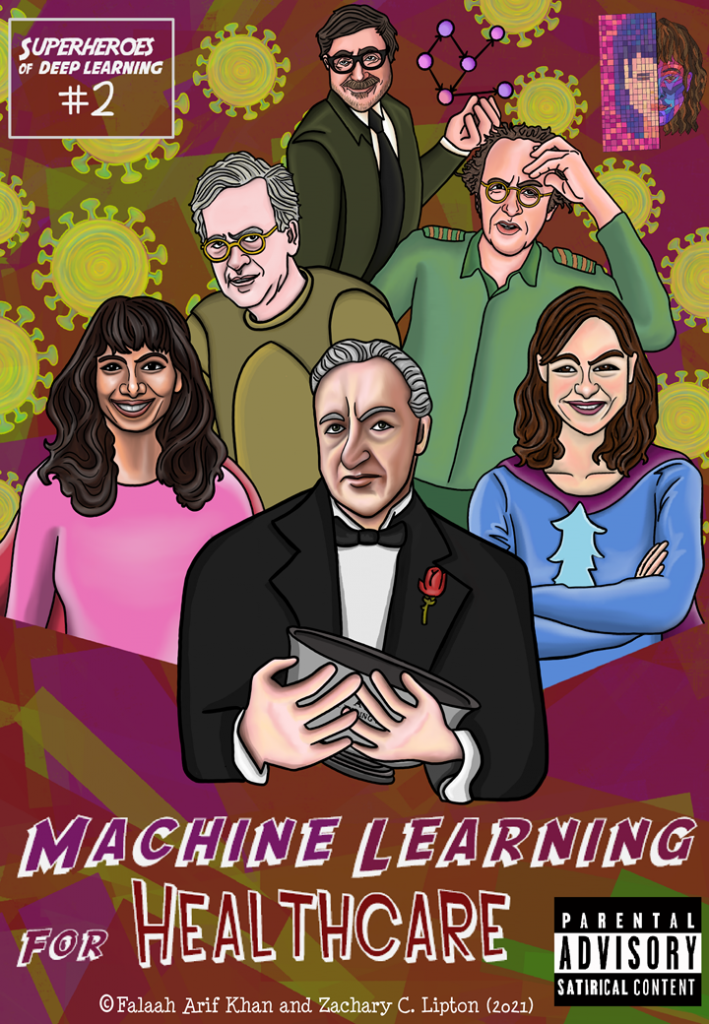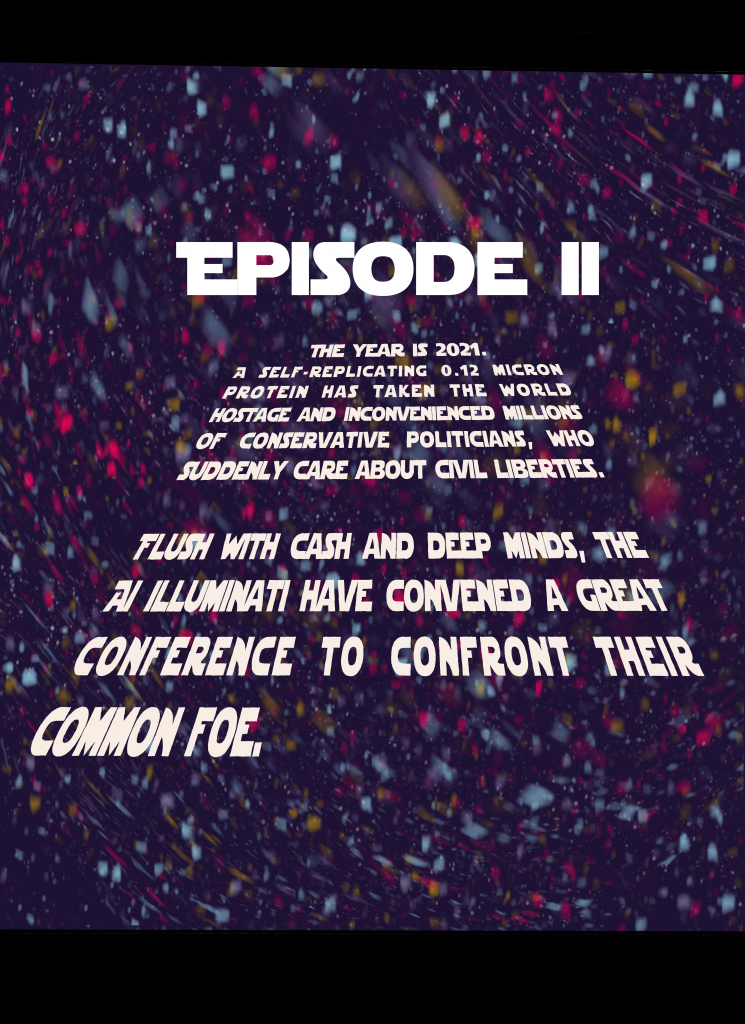Full PDFs free on GitHub. To support us, visit Patreon.


![Meanwhile spurned by the ML elite, DAG-man de-stresses on a California beach with some sunnies and funnies…
[DAG-Man] On beach, lounge chair, sipping beach cocktail with little umbrella & pineapple slice,
Reading DL Superheroes Vol 1.
[Tweeting out on Blackberry --- “Translation please? I grew up with Popeye and Little Red Riding Hood....” ]](https://www.approximatelycorrect.com/wp-content/uploads/2021/08/2-745x1024.png)
![[Somewhere in Westchester county...]
[Giant mansion, inspired by Prof X’s school for the gifted—long trail of mafia town cars lined up outside. At the entrance is a long line and a registration desk, with 1000s of people in line to get their badge and nametag]
[Poster outside says International Conference for ML Superheroes 2021]
[All the factions of the ML community are here, The DL Superheroes, Rigor Police (dressed up like British bobbies), The Algorithmic Justice League, The Causal Conspirators, and the Symbol Slappers ]](https://www.approximatelycorrect.com/wp-content/uploads/2021/08/3-745x1024.png)
![Anon char 1: How did the Superheroes afford this place?
Anon char 2: Was the Element AI acquihire more lucrative than we thought?
Anon char 3: ... I heard Captain Convolution got in early on Gamestop
Anon char 4: Shhh… he’s about to speak...
The GodFather: I look around, I look around,
and I see a lot of familiar faces.
[nods at each]
Don Valiant, Donna Boulamwini, GANfather....
It’s not every day that we gather
the entire family under one roof.
We unite here today
And put aside our differences
because a gathering threat
imperils our common interests
You may already know...](https://www.approximatelycorrect.com/wp-content/uploads/2021/08/4-745x1024.png)
![[Tensorial Professor]
The curse of dimensionality?
[Kernel Scholkopf]
Confounding?
[Code Poet]
Injustice?
[The GANfather]
Schmidhubering?](https://www.approximatelycorrect.com/wp-content/uploads/2021/08/6-1-745x1024.png)
Technical and Social Perspectives on Machine Learning
Full PDFs free on GitHub. To support us, visit Patreon.


![Meanwhile spurned by the ML elite, DAG-man de-stresses on a California beach with some sunnies and funnies…
[DAG-Man] On beach, lounge chair, sipping beach cocktail with little umbrella & pineapple slice,
Reading DL Superheroes Vol 1.
[Tweeting out on Blackberry --- “Translation please? I grew up with Popeye and Little Red Riding Hood....” ]](https://www.approximatelycorrect.com/wp-content/uploads/2021/08/2-745x1024.png)
![[Somewhere in Westchester county...]
[Giant mansion, inspired by Prof X’s school for the gifted—long trail of mafia town cars lined up outside. At the entrance is a long line and a registration desk, with 1000s of people in line to get their badge and nametag]
[Poster outside says International Conference for ML Superheroes 2021]
[All the factions of the ML community are here, The DL Superheroes, Rigor Police (dressed up like British bobbies), The Algorithmic Justice League, The Causal Conspirators, and the Symbol Slappers ]](https://www.approximatelycorrect.com/wp-content/uploads/2021/08/3-745x1024.png)
![Anon char 1: How did the Superheroes afford this place?
Anon char 2: Was the Element AI acquihire more lucrative than we thought?
Anon char 3: ... I heard Captain Convolution got in early on Gamestop
Anon char 4: Shhh… he’s about to speak...
The GodFather: I look around, I look around,
and I see a lot of familiar faces.
[nods at each]
Don Valiant, Donna Boulamwini, GANfather....
It’s not every day that we gather
the entire family under one roof.
We unite here today
And put aside our differences
because a gathering threat
imperils our common interests
You may already know...](https://www.approximatelycorrect.com/wp-content/uploads/2021/08/4-745x1024.png)
![[Tensorial Professor]
The curse of dimensionality?
[Kernel Scholkopf]
Confounding?
[Code Poet]
Injustice?
[The GANfather]
Schmidhubering?](https://www.approximatelycorrect.com/wp-content/uploads/2021/08/6-1-745x1024.png)
By David Kale and Zachary Lipton
Starting Friday, August 18th and lasting two days, Northeastern University in Boston hosted the eighth annual Machine Learning for Healthcare (MLHC) conference. This year marked MLHC’s second year as a publishing conference with an archival proceedings in the Journal of Machine Learning Research (JMLR). Incidentally, the transition to formal publishing venue in 2016 coincided with the name change to MLHC from Meaningful Use of Complex Medical Data, denoted by the memorable acronym MUCMD (pronounced MUCK-MED).
From its beginnings at Children’s Hospital Los Angeles as a non-archival symposium, the meeting set out to address the following problem: